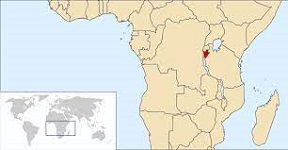The International Monetary Fund (IMF) advised the Government of Burundi to improve its foreign exchange (forex) reserves.
“Foreign exchange reserves have fallen to 1.6 months of imports at end-June 2022 from 2.2 months at end-2021, as the increased import bill is not matched by capital inflows. External sustainability challenges have worsened, and the current account deficit is projected to widen to 14.9 percent of GDP in 2022, mainly owing to higher fuel, consumer, and capital goods imports,” said IMF in its statement issued on Friday after its team concluded a visit in Burundi.
The current account deficit, combined with unmatched FDIs and other external inflows would continue to put pressure on foreign exchange (FX) reserves…The fiscal deficit narrowed to 4.1 percent of GDP in 2021/22 (7.8 percent in 2020/21), thanks to a reduction in current spending, especially transfers, and strong revenue collection, notably higher income tax collection supported by recent revenue measures. Investment execution accelerated. Public finances have been resilient, despite the commodity price shock,” it said.
“The authorities have ensured a pass-through from global to local prices, including for regulated prices, thus containing subsidies. The government nevertheless decided to forego certain taxes on petroleum products, which has contributed to a drop in tax revenue from these products,” said Ms. Mame Astou Diouf, IMF Mission Chief for Burundi.
“Public investment is projected to further increase in 2022/23 and over the medium term, leading to a higher fiscal deficit in 2022/23. Strong donor financing and the impact of recent revenue measures and reform plans to enhance public financial management and spending efficiency would help contain the fiscal deficit in the medium term.”
“The authorities implemented several measures to contain the spillovers from the war in Ukraine. In the first half of 2022, they used part of their SDR allocation (SDR 57 million) to alleviate import restrictions owing to limited FX availability,” Ms. Mame Astou Diouf said.
“They started intervening in the fuel sector with direct fuel imports to circumvent fuel import bottlenecks and have lifted restrictions on the import of corn, seeds, flour, sugar, and cement to alleviate domestic shortages. However, the unintended effects of such measures may require mitigation,” she said.
Going forward Ms. Mame Astou Diouf, stated that “Burundi will continue to grapple with the challenges of balancing priority social and development spending with the need to maintain macroeconomic stability and address debt vulnerabilities and the weak external position.”
She noted that a multi-pronged policy recalibration is critical, including
“(i) addressing inflationary pressures with a careful recalibration of the current accommodative monetary policy stance,
(ii) a revenue-led fiscal consolidation and prudent borrowing to reduce debt vulnerabilities while creating fiscal space for development and social spending; and
(iii) a recalibrated exchange rate policy and modernized monetary policy framework, while being attuned to FX-related financial sector vulnerabilities. An accelerated implementation of reforms to alleviate bottlenecks to inclusive growth, including improving competitiveness and further enhancing the governance framework will be key.”
Burundi’s economy remains resilient despite headwinds from the effects of the war in Ukraine. Higher commodity (food and fuel) prices have increased inflation (19.6 percent at end-August 2022), while compounding the country’s vulnerable external position, according to the IMF.

